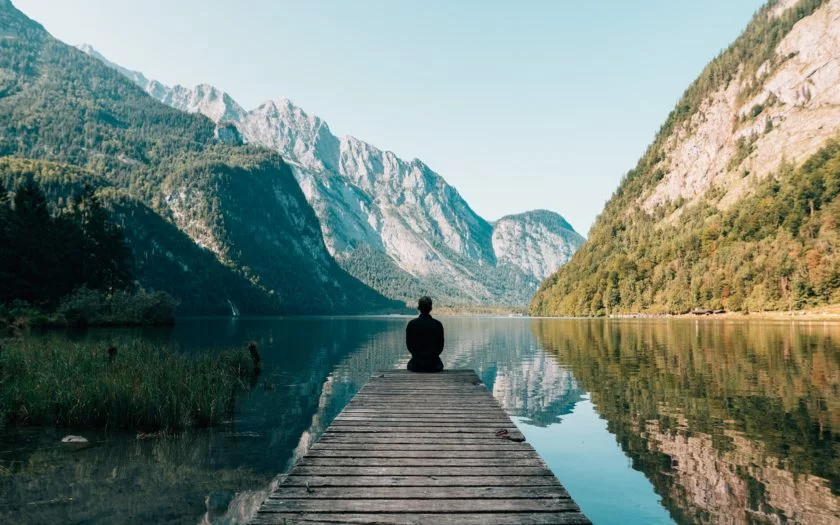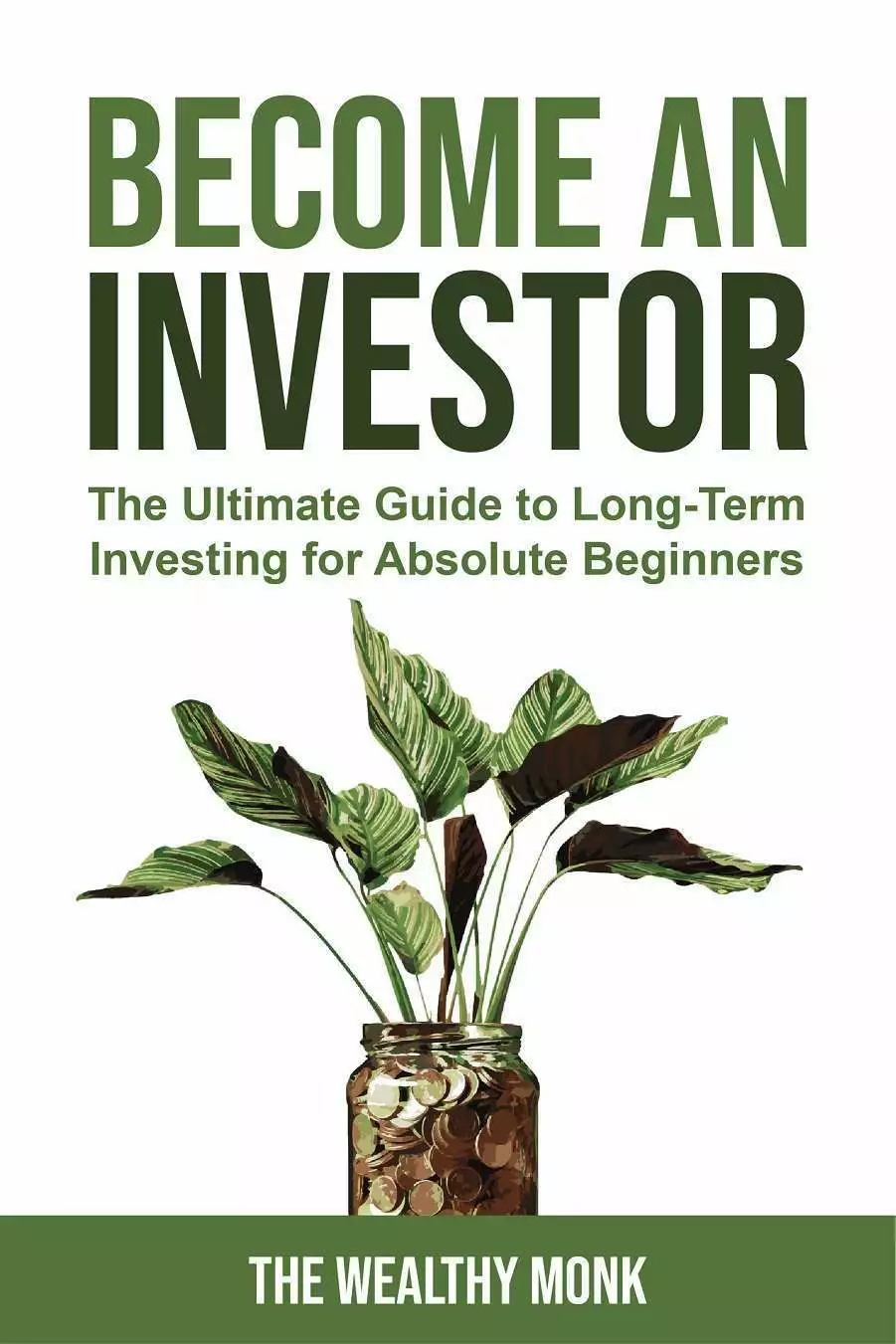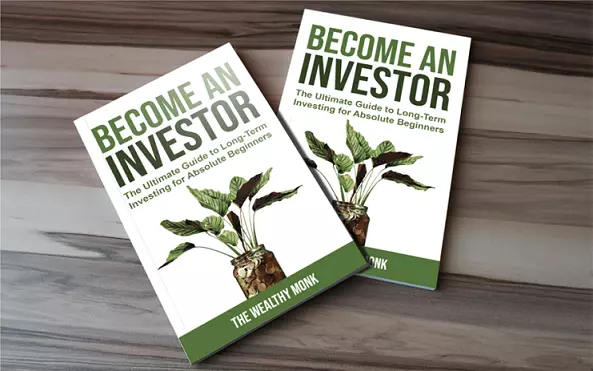
A Monk’s Take on Happiness
I remember myself being focused on being happy from the earliest of age. Not only though theory or self-reflection, but especially through active pursuit of the state of fulfillment, which was keeping me satisfied with both myself and my life.
I had moments when achieving this state was a real challenge and also had moments when it came naturally. Whatever the case was, I often caught myself taking the mental note that everything is temporary. And up to this day, whenever I’m pushing through an uncomfortable period, it helps me remember the non-permanent nature of things regardless of how good or bad they are.
What I’m particularly proud about is not overcoming the toughest of the burdens, but that I realized this fact at a relatively young age. Simply put, the state of happiness is impossible to be achieved permanently. After some struggling with this idea, which made life seem somewhat pointless, I found a way to approach the issue and maintain the state of fulfillment over time.
Basically, although I knew that long-term happiness may not be achieved, I also knew that short term happiness is always an action away. Whether it was internal (feeling satisfied, experiencing something) or external (being somewhere, doing something, or seeing someone), it was usually within reach.
And to be perfectly clear, yes, I was purposefully indulging in the low effort, fast reward, instant gratification activities, but I was still on track for my mid to long-term goals – the progress of which also contributed to the fulfillment I was after. I just kept them balanced, which required almost no effort after I found out that it works… It just didn’t make sense otherwise.
So although still young, I had an idea about how I should approach my life. Taking responsibility for my state of mind, being focused on myself and not the others, and actively working towards self-actualization, while not neglecting the other aspects of my life (such as my physiological or entertainment needs). Finding the right balance between the easier and the more burdensome activities is important because:
- By only doing the easy ones you’ll feel like a slacker and
- By only doing the tough ones you’ll feel disconnected from yourself.
Make this balance your daily life and you get a Monk Wealth guarantee that you’ll enjoy your life.
Note, I’m not saying “do this once”, I’m saying “make it your daily life”. Doing it once can leave you wondering “why can’t every day be like this“, while the reality is that it actually can.
Basically, how you live each day is how you live your life.
And let me lead by example – I’m just a section in, but guess what I’ll do now? I’ll put a 20 minute gameplay video on and chill-out for some time before continuing.
The reality, though
As we get older though, things can get into our way in forms of obligations and chores for the less fortunate, or big goals to lose yourself into, for the more fortunate.
Yes, both are bad. Biting my tongue not to say equally bad. Actually, I have to admit that as I grew older I found myself in both situations and was stripped of the feeling of fulfillment I once had.
Basically, both lead to forgetting about your actual self and leave people feeling lost and unworthy, which has an impact on their (our) confidence, self-perception, and ultimately, character.
So, make sure to stay on your way towards a long-term goal that has meaning to you, but as the same time do not neglect the little things you’ve taught yourself to love. Accept your needs and don’t be ashamed of them.
Let’s lower the level of abstraction a little bit and explain what I actually mean by long-term VS the short-term activities.

Long-term activities
A long-term activity, or a goal, can mean different things to different people and as long as it’s not too easy or can be done within a week, almost anything qualifies. A good way to pick one is to think of an activity you’d enjoy, but whose rate of success you can’t predict. Things like: getting a PhD, becoming an actor, establishing a business, raising your kids into good people, getting a black belt etc. Note that I’m using these as examples and not saying that all of them are related to my goals. But I also have a few. The important thing is that the mentioned activities may take 0-10 years and they are all good candidates, even simultaneously, for a quality long-term goal.
Please take a note that this is not a typical “productivity” post and my intention is not to promote random restrictions to lazy people by riding the popularity of the self-help wave. So, don’t wake up at 5AM or stop playing video games. Do what you enjoy! What I’m saying is that we all need to give meaning to our day-to-day life – and that is done through a goal that is bigger than just doing things today.
There is a thing that can go wrong though. And it’s bigger than the risk of stopping to enjoy the direction you took. However, it’s solvable in the same manner as if you stopped enjoying it. I’m talking about the risk of enjoying your journey so much that you feel empty once you achieve it.
For example, for those with more athletic aspirations, let’s say it took you nearly a decade to get to black belt. The worst thing that can happen afterwards is the realization that nothing really matters. That you’re not happier than you were a few months ago, while grinding towards this big achievement. And what now? Everything seems… Just meaningless.
Remember not to get depressed once you achieve a goal by reminding yourself that none of them is the point of your life, but “just” a long-term goal. Once one is achieved, give yourself a breather (week, month, year, depending on your needs or capacity) and go for another one. Grasp this concept now and never feel alone at the top: Complement your long-term goals with a series of things that simply make you feel good. Because they are the ones which are here to stay. That brings us to the:
Short-term activities
These are really important and at the same time easily neglectable.
Let’s start with describing what they are and then we’ll go into why are they so difficult to maintain, especially for smart people.
These are things that one simply enjoys. Things that don’t have a “point” other than making a person feel good, give adrenaline / dopamine boost, or just put the mind in a calm or enjoyable state (such as “flow”). A few examples, again, not all applicable to me, are: painting, driving fast on a freeway, casual hookups, running, cooking, playing video games, etc.
Some are more sinister than the others, but I won’t judge a human being for the circumstances he grew up in. If you remember the last sentence, you’ll have a really easy time understanding people and rarely getting touched by anything that anyone does or says.
So, as I said, as we get older, these activities usually get abandoned and people tend to focus only on the bigger ones. Some even on none, as they’re overwhelmed with obligations and chores large enough to make them confuse rest with time for themselves. But at the end, the person that is obsessed with a single goal may end up hoping that the only shot he ever took will have to validate his existence in some mystical way. While the person that has none will be doomed to feel like he has done nothing with his life.
Taking no breaks to nurture your physical, emotional, or intellectual needs is the closest thing to suicide. If you’re 100% focused on some goal, give yourself a day off to do the thing you think you’ll do “after you finish this”.
Don’t try to time it, the time is never right. For anything. Just doing it is the way to go.
So just do it.
Overthinking
Every decision leads to missing out on all the ones you didn’t take – all are wrong in their own way, so there is not much to worry about. From the other side, the one you’ll take is all there is, so the is no point in regretting – you don’t know the outcome of the others. Everyone should afford themselves to just do it for a proportion of the chances they take.
So, define (or keep) your long-term commitments (if you still enjoy them), but also allocate 30-50% of your time for the low-effort things that your body and mind crave for. Have in mind, you’re not hearing this from a theoretically inclined person – just for the record, I’ve been obsessed, went all-in, achieved accomplishments in multiple fields, most of which officially, but I’m yet to tie any of my passions to my character. Polishing the winner’s cup and living on the glory of what-was is a recipe for becoming a has-been.
Lastly, don’t expect much. Don’t need much. Go 100%, but not 100% of the time. Need a little and you’ll have a lot.
This is starting to sound pretentious, so I’ll close with: do whatever feels right.

Afterword
I don’t want to make this post about me and list all the short-term activities I’m enjoying currently, but I’ll say that the balance between them and my long-term goals is around 50/50 of my spare time. I’ll share some of the long-term goals, though.
One of them, in the context of this blog, include getting to 50% of my FIRE goal (check the current status in the sidebar) and start thinking about sabbaticals / mini-retirements. Another one I’m in the middle of is getting in the best shape of my life until April and I’m following a strict eat/train/sleep schedule to do so. I want to point out that these goals have different durations, but at this moment they, and a few more, all happen simultaneously. Of course, I’m complementing my pursuits with things I enjoy doing or those that put me in a flow state (which I’m going for daily).
And none are written in stone. After I get into what I call the best shape of my life, I’ll just congratulate myself and keep doing what feels right. If I’m feeling too exhausted from taking too many weekend trips (a short-term activity I enjoy), I’ll just stop doing it.
That’s the beauty of accepting myself.
By the way, the more specific the goal is the better. But this post is about the state of happiness, so I won’t hijack it to talk about how to set SMART goals… But will mention that SMART stands for Specific, Measurable, Achievable, Realistic, Time-bound.
And if I add one more adjective, that would be: enjoyable. None of the example activities I listed above are related to obligations, responsibilities, or chores. And believe me, those three take the majority of our time, unfortunately (maybe 80-90%, as explained in this post). I’m talking about things that make us wake-up in the morning. Things that make us feel good about ourselves.
Nurturing our well-being is what makes us satisfied.
Satisfaction is what makes us feel fulfilled.
And continuous fulfillment is the sole contributor to happiness.

















Comments: 1
[…] already know that there are really no items that could make me happier. What actually did make me happier is that I just finished a hardcore training program I was […]